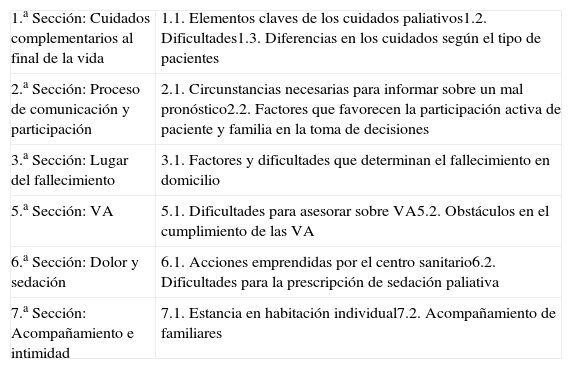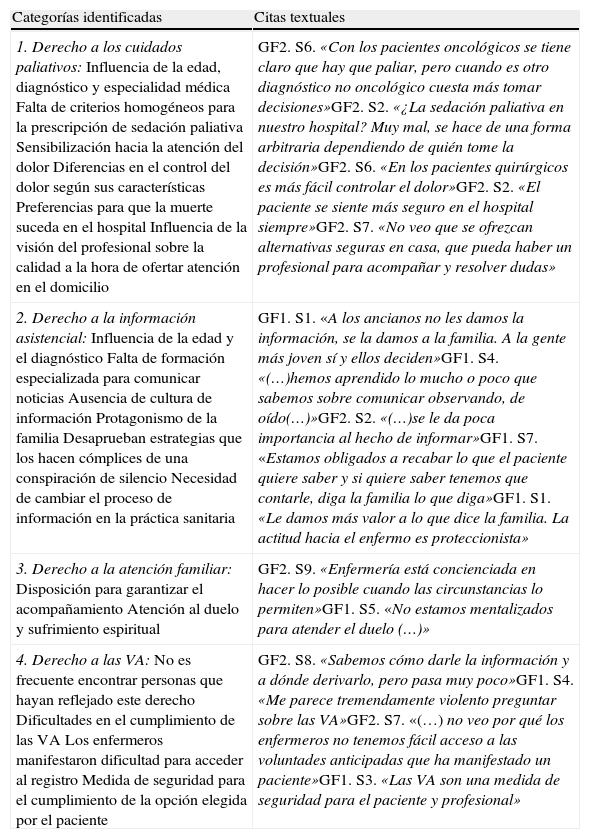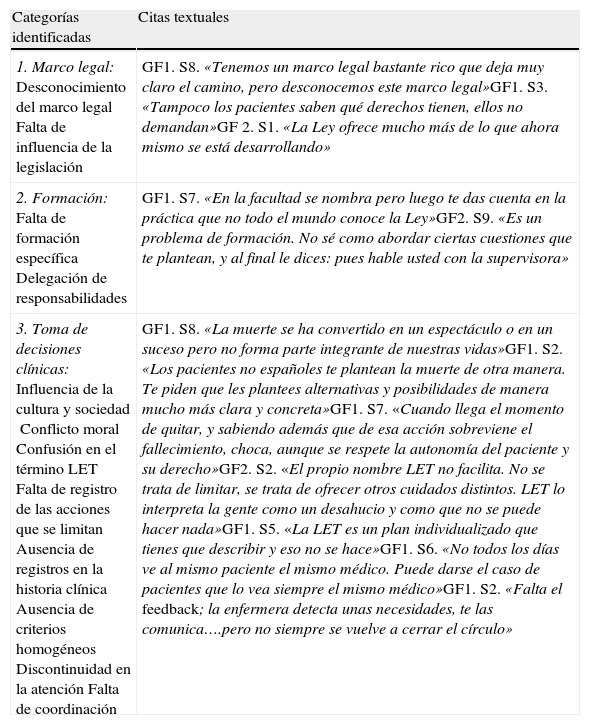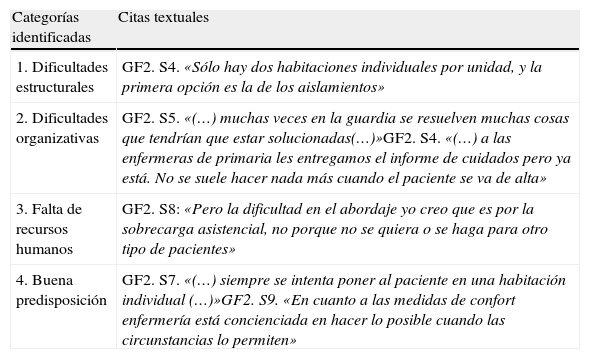Explorar las percepciones, creencias, barreras y facilitadores que encuentran médicos y enfermeras ante el derecho a morir con dignidad en un hospital de agudos y la aplicabilidad de las disposiciones de la Ley 2/2010 del 8 de abril.
MétodoEstudio cualitativo descriptivo a través del análisis de los discursos de médicos y enfermeras que desempeñan su actividad asistencial con pacientes terminales oncológicos y no oncológicos en un hospital de agudos mediante la técnica de grupos focales.
ResultadosLos resultados muestran la existencia de diferentes obstáculos para garantizar los derechos de los pacientes en el proceso de muerte y el cumplimiento de los deberes de los profesionales y las instituciones sanitarias. Estas dificultades dependen de las características propias del paciente y la familia, del propio profesional sanitario, de la organización de la atención y de factores culturales.
ConclusionesSe evidencia la necesidad de mejorar el proceso de comunicación con el paciente y su familia y favorecer la toma de decisiones compartidas, establecer medidas que clarifiquen la sedación paliativa y la limitación del esfuerzo terapéutico. Es necesario potenciar la aplicabilidad de la ley de muerte digna y voluntades anticipadas en áreas especializadas no oncológicas. Se precisa mayor formación en la dimensión ética, espiritual y antropológica del cuidado en estas situaciones.
To examine the perceptions and beliefs of doctors and nurses, and the barriers and facilitators they must address as regards the right to die with dignity in an acute-care hospital, and to consider the applicability of the provisions of Law 2/2010 of 8 April in this respect.
MethodA qualitative descriptive study, based on the focus group technique, using discourse analysis of the views of doctors and nurses responsible for the health care of terminal cancer and non-cancer patients in an acute-care hospital.
ResultsThe results obtained show that there are diverse obstacles to assure the rights of terminal patients, and to ensure the proper performance of their duties by healthcare professionals and institutions. The nature and impact of these difficulties depend on the characteristics of the patients and their families, the health workers involved, the organisation of health care, and cultural factors.
ConclusionsThe study highlights the need to improve the process of communication with patients and their families, to facilitate shared decision making and to establish measures to clarify issues such as palliative sedation and treatment limitation. It is necessary to improve the applicability of the law on living wills and dignified death in non-cancer specialist areas. Further training is needed regarding ethical, spiritual and anthropological aspects of care in these situations.
Artículo
Comprando el artículo el PDF del mismo podrá ser descargado
Precio 19,34 €
Comprar ahora










